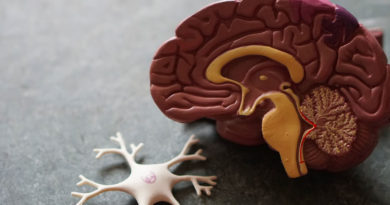Real Questions about Alzheimer’s Disease
It’s a tragic fact that that one in three seniors will die with Alzheimer’s disease or another form of dementia. About 12.5 percent of people over the age 65 suffer from Alzheimer’s and this percentage rises to almost 50 percent after the age of 85.
In the United States, Alzheimer’s disease is the fifth-leading cause of death of people 65 years old and above. There is yet no way to slow down the progression of this disease much less cure it.
For caregivers and for those of us who have a loved one suffering from Alzheimer’s it is extremely important that we educate ourselves about dementia, the more we know about this disease, the more we are able to better perform our responsibilities of caring for the patient.
People typically ask the same questions about Alzheimer’s and dementia. Based on my research, the following are the five most common questions about Alzheimer’s disease:
1. Is there a difference between Alzheimer’s disease and dementia?
Alzheimer’s disease and dementia are different from each other although people usually interchange those terms. Alzheimer’s is a form dementia, which is a condition that occurs when the brain’s nerve cells no longer function normally. Dementia symptoms include inability to finish tasks and plan activities, and progressive worsening in the memory, judgment or behavior of a person.
Alzheimer’s disease makes up sixty to eighty percent of all dementia cases making it the most common form of dementia. Alzheimer’s disease or AD causes changes in the brain that at some later time impact basic bodily functions such as swallowing and walking.
There are actually more than 100 forms of dementia. The second most common form is vascular dementia making up 20% of all dementia cases. “Familial” Alzheimer’s disease more known as early onset dementia develops before 60 years of age and comprises on average, 6% of Alzheimer’s disease cases. Other common forms of dementia include Lewy Body dementia, frontotemporal dementia, and Parkinson’s disease.
2. How is Alzheimer’s disease diagnosed?
Actually, there is still no test that can actually diagnose Alzheimer’s disease. However, physicians can diagnose “probable Alzheimer’s disease” with an accuracy of 90% by ruling out other causes of cognitive decline and memory problems and by neuropsychological testing. Depression can be ruled out through review of the patient’s medical history; vitamin deficiencies, thyroid dysfunction, and urinary infection can be ruled out by lab tests; and tumors, trauma, and strokes can be ruled by MRI or CT scan.
Some memory care clinics offer a new PET scan that involves an intravenous injection of an FDA-approved radioactive drug known as florbetapir that attaches to a protein called amyloid, which scientists believe plays a huge role in the development of AD plaques. Amyloid PET scans expose plaques on 96% of patients suffering from severe Alzheimer’s disease and 26.7 percent of patients with mild cognitive impairment. But a huge false-positive rate arises when researchers show a third of people 65 years old and over who are manifesting normal cognition and not likely to develop AD have amyloid plaques on these PET scans.
3. Why is early diagnosis highly recommended if no cure for AD is available?
There are several good reasons why early detection and diagnosis are important if you think you’re loved one is manifesting signs of cognitive erosion. Here are some of those reasons:
- It gives the dementia patient and his/her family some time to plan for the future.
- It gives caregivers more awareness of the dangers that the condition entails which helps lessen accidents and falls
- It makes family members and doctors aware of the likelihood that the patient may require help with daily tasks such as managing medications and cooking
- It make one more aware how certain combinations of medications can make symptoms worse
- The option of joining clinical trials is available for people who are diagnosed early
- Treatment options like drugs can be used to manage symptoms
- Early diagnosis can help reduce anxiety by identifying the problem
- Discussing the diagnosis with the patient’s family members is very important since it leads to a search for the right support services
- Early diagnosis can identify the cause of the cognitive decline (vitamin B12, deficiency, or depression), which may have a treatment and can prevent further decline
4. Can one inherit Alzheimer’s disease?
In early-onset AD, gene mutations result in a series of effects in the brain which causes the increase of amyloid. If the mutated gene is carried by one parent, there is a 50 percent chance the child will develop the disease; this risk rises to 75 percent of both parents carry the gene.
For AD sufferers 60 years and above, there is something known as APOE ε4 allele, a “risk factor” gene that raises the risk if it was inherited from a parent. The National Institute on Aging has stated “Certain individuals with a single or a couple of APOEε4 alleles never develop AD, while others and others who do not have any APOEε4 alleles develop Alzheimer’s.” This is usually the reason doctors do not recommend a blood test for people who are at risk for AD.
Certain research efforts indicate that one is highly likely to develop Alzheimer’s disease if one’s mother had it.
5. How can I reduce the risk of developing dementia?
In the case of AD, there are no sure fire ways to prevent it from developing. However, researchers have recommended exercise which they believe can help lower the risk.
Exercise – Studies have shown that exercise can be a powerful remedy for dementia. One such study saw that individuals with mild cognitive impairment who performed resistance weight training for six months twice a week manifested an improvement in their the ability to multi-task and memory. In another study, subjects regained volume in their hippocampus, which set back brain shrinkage when they walked forty minutes each day for a year. A third study performed Rush University Medical Center’s neurologists reveals that daily various activity—from activities to formal exercise such as cooking, cleaning, and washing dishes can mitigate the chances of developing AD, even in people over age 80.



